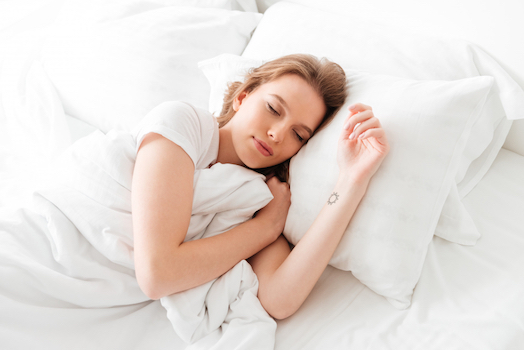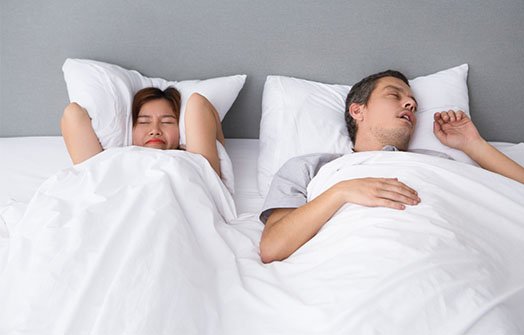Sleep Apnoea
The Dangers of Uncontrolled Sleep Apnoea

What is Sleep Apnoea?
Sleep apnoea occurs when breathing stops for a period of time (each pause in breathing is called an apnoea) until the brain registers the lack of breathing or a drop in oxygen levels and sends a small wake-up call.
The sleeper rouses slightly, opens the upper airway, typically snorts and gasps, and then drifts back to sleep almost immediately.
It’s estimated that about five per cent of Australians suffer from this sleep disorder, with around one in four men over the age of 30 been affected.
Degrees of Severity
- Normal – less than five interruptions an hour
- Mild sleep apnoea – between 5 and 15 interruptions an hour
- Moderate sleep apnoea – between 15 and 30 interruptions an hour
- Severe sleep apnoea – over 30 interruptions an hour.
Contributing Factors
People with significant sleep apnoea have an increased risk of motor vehicle accidents and high blood pressure and may have an increased risk of heart attack and stroke.

- Alcohol, especially in the evening – relaxes the throat muscles and hampers the brain’s reaction to sleep-disordered breathing.
- Certain illnesses, like reduced thyroid hormone production or the presence of a very large goitre.
- Large tonsils, especially in children.
- Medications, such as sleeping tablets and sedatives.
- Nasal congestion and obstruction.
- Facial bone shape and the size of muscles, such as an undershot jaw.
Symptoms of Sleep Apnoea
Some of the symptoms associated with sleep apnoea include:
- Snoring
- Waking up un-fresh
- Some degree of sleepiness
- Disturbed breathing during sleep
- Poor Concentration
- Sexual Dysfunction
Sleep Apnoea Treatment
Treatment for sleep apnoea relies on changes to lifestyle. This includes losing weight and cutting down on alcohol.
Any contributing medical condition, such as low production of thyroid hormone, also needs to be corrected. Any surgical conditions such as large tonsils should be corrected.
- Airway pressure therapy via a mask worn at night that keeps the back of the throat open by forcing air through the nose.
- Taking a sleep test (normally referred by your General Practitioner)
- Dental appliances
When visiting your Albury dentist, we are able to assist in finding the cause and assist in treating sleep apnoea. Book a consultation with our team today to find out if you are eligible for a dental appliance to treat sleep apnoea.
A full medical history will be taken before any clinical procedures take place. Due to regulatory requirements, we must inform you that any surgical or invasive procedure carries risks. Before proceeding, you should seek a second opinion from an appropriately qualified health practitioner.
Sleep Apnoea in Albury
Talk to us today to see how we can help.
Give us a call on (02) 6021 4171 for more information. Request your appointment online.
We are located at 525 Wilson St in Albury.
